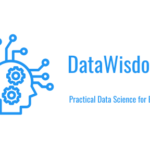Finally got to catchup on some startup and real data science activity after a few months. Wanted to put together what I have been thinking for a while. For me writing helps to clarify my thought process and turn the jumble of thoughts into something more clear and specific.
There is a lot going on in data science especially with the buzz around OpenAI’s ChatGPT. I haven’t used it yet but looked at what it does and how it was built. Smart and brilliant concept but not reliable yet. But it can answer a lot of queries well, which is a good starting point and competitive advantage to have as a startup. Overall, I think the LLM (Large Language Model) based DL (Deep Learning) models are gaining lot of traction. It’s hard to train your own models on small data sets and then expect them to perform well in real world scenarios with the large variations in scenarios.
NLP combined with LLM’s and transfer learning based DL models look promising for solving a variety of business problems, with limited time & resource investment. These technologies are expensive too but considering the time & money spent on building custom models with no real business benefit, it’s better to try using such approaches first before investing in expensive data science projects.
Reason a lot of data science projects fail/achieve nothing is because the business objective is not clearly analysed/defined. All possibilities are not explored at the start of the project and the approach among cross functional teams is not collaborative. Normal issue with most large companies globally across industries. Models are being built for their own sake, trying to show use of some algorithms and making it sound complicated, not for achieving real business objectives. If existing algorithms/technologies can achieve what a company needs, why invest in expensive systems/models which are over-optimized/forced fit to some scenarios. They are bound to fail eventually.
All companies large or small eventually have one objective, generate revenue/profits by attracting/holding on to new/existing customers. Their objective is to build products and services that help them achieve this, not trying to chase fads or new technologies. All business functions have to work for that objective, not the other way round, only then can that company outperform its competitors.
We are in a high inflation/interest rate environment, global growth is slowing, profits will shrink, customers will be more careful where/what they spend on. Companies have to question what is the net benefit of every project. 2022 was a long overdue correction for technologies and startups, necessary to clear out the unviable business models/valuations. Crypto and related technologies were proven to be the scam that they are. While the carnage was painful, it will help everyone in the ecosystem focus their efforts on building technologies/companies that have real business use/customer benefit. In fact recessions/downturns are the best times to do a startup as everyone in the ecosystem is realistic and not chasing pipe dreams.
Healthtech, Fintech, and other ‘tech’ startups can still find market niches. The markets are huge in USA and globally, still underexplored and the current economic environment opens up interesting prospects as large companies generally avoid taking risk in current market conditions. The last few years have shown that globally we are woefully underprepared to handle simple disruptions in supply chains of products, services and skilled resources. Customers are fed up with companies that can’t fulfil basic expectations despite all the resources that have been spent on building expensive over-optimized processes/supply chains.
With some R&D, customer/market participants/investor discussions and using existing technologies & processes, an MVP POC startup can be launched with limited resources in a few months to get real market feedback and improve iteratively. Standard stuff for startups. While doing a startup is painful and fraught with risks, the benefits of better outcomes & growth with practical learnings make it worth the effort. Exploring all possible resources in your local ecosystem is generally the best starting point. Most commercial hubs big/small globally support startups to spur growth and innovation in their local economies and their ripple effects.
I am exploring a few ideas in healthtech and fintech and will be sharing more thoughts on that. Looking for open feedback/discussion/networking on improving them, finding the flaws/gaps early, and identifying possibilities that can only be done collaboratively with others providing different viewpoints based on their experience/skills. No startup/product can be built in isolation. For startups networking is the best way to meet prospective customers/partners/co-founders/advisors. Time to fire up the engine and get cracking.















